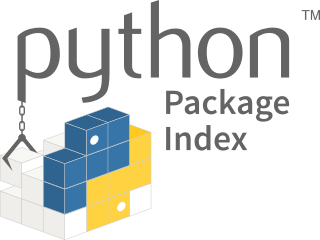How to Publish Your Code as a Pip Module
January 7, 2025 · 2 min read · Page View:

A simple manual for publishing your code as a pip module.
If you have any questions, feel free to comment below. Click the block can copy the code.
And if you think it's helpful to you, just click on the ads which can support this site. Thanks!
Last week, I have made a python cli tool. To make it more convenient to use, I want to publish it as a pip module, so I have made some research and mistakes, and finally succeeded.
Prerequisites #
- Register a pypi account in the official website[1]
- Apply a token in the pypi management page[2]
- Make sure your module name will be unique, you can check it in the pypi search page[3]
Check your code #
- Make sure your code is in a “package” folder (Must have
__init__.pyfile) - Create a
README.md - Create a
LICENSE - Create the
pyproject.tomlfile in the root folder of the package, you can use the following content as a template:
[build-system]
requires = ["hatchling"]
build-backend = "hatchling.build"
[project]
name = "biliupload" # make sure your module name is unique
version = "0.0.1"
authors = [
{ name="timerring"},
]
description = "Login and upload videos to bilibili"
readme = "README.md"
license = { file="LICENSE" }
requires-python = ">=3.10"
classifiers = [
"Programming Language :: Python :: 3",
"License :: OSI Approved :: MIT License",
"Operating System :: OS Independent",
]
dependencies = [
"PyYAML==6.0.2",
"qrcode==8.0",
"Requests==2.32.3",
"requests_html==0.10.0",
]
[project.urls]
"Homepage" = "https://github.com/timerring/biliupload"
The below is the basic template, if you are making a cli tool, you also need to add the project.scripts section.
For more details, you can refer to the official documentation[4]
Build the package #
- Latest version of PyPA’s build is recommended
python3 -m pip install --upgrade build
- Build the package(run this command from the same directory where pyproject.toml is located)
python3 -m build
You will see the following output in dist/ folder:
.whlfile: the built distribution.tar.gzfile: the source distribution
Upload distribution archive for TestPyPI #
The TestPyPI is a isolated website of PyPI, you can upload your package to it first to check if it works.
- Register on TestPyPI[5]
- Apply a token in the TestPyPI management page[6]
- install the twine package
python3 -m pip install --upgrade twine - upload the distribution packages via
python3 -m twine upload --repository testpypi dist/*and you can check your package. - Test your package in a new environment
python3 -m pip install --index-url https://test.pypi.org/simple/ biliupload
That maybe have some problems, you can refer to the Conflict problem section to fix it.
Upload distribution archive formally #
- Make sure your production version for build is ready
- Upload the distribution archive via
python3 -m twine upload dist/* - Then you can pip it formally
pip install biliupload
Your can also refer to the official documentation[7] if you want more details.
Additionally, you may also want to make it into a executable file, you can just use the
pyinstallerpackage commandpyinstaller -F biliupload/cli.pyto do it.Note:
pyinstalleris not a cross-platform compiler, you need to compile it on the platform you want to run it on via docker or some other tools. And if you want to Using Data Files from a Module[8], don’t forget to include it viapyinstaller --add-data "bilitool/authenticate/config.json:bilitool/authenticate" -F bilitool/cli.py.
Conflict problem #
You may encounter the following error:
The conflict is caused by:
biliupload 0.1.1 depends on pyyaml==6.0.2
biliupload 0.1.0 depends on pyyaml==6.0.2
To fix this you could try to:
1. loosen the range of package versions you've specified
2. remove package versions to allow pip to attempt to solve the dependency conflict
That is because you are using the pyyaml package which is not exist in the testpypi, so you can refer to this stackoverflow[9] to fix it via pip install -i https://test.pypi.org/simple/ --extra-index-url https://pypi.org/simple biliupload==0.1.0, which the --extra-index-url pointer to the pypi.org.
References
- https://pypi.org/ ↩︎
- https://pypi.org/manage/account/ ↩︎
- https://pypi.org/search/ ↩︎
- https://packaging.python.org/en/latest/guides/writing-pyproject-toml/ ↩︎
- https://test.pypi.org/account/register/ ↩︎
- https://test.pypi.org/manage/account/#api-tokens ↩︎
- https://packaging.python.org/en/latest/tutorials/packaging-projects/ ↩︎
- https://pyinstaller.org/en/stable/spec-files.html#using-data-files-from-a-module ↩︎
- https://stackoverflow.com/questions/73799981/conflict-errors-installing-own-packages-located-on-test-pypi-org-using-pip-or ↩︎
Related readings
- Python Generator Iterator and Decorator
- Python Underlying Mechanism
- Python Files Exceptions and Modules
- Python Object Oriented Programming
- Python Cheatsheet
If you want to follow my updates, or have a coffee chat with me, feel free to connect with me: